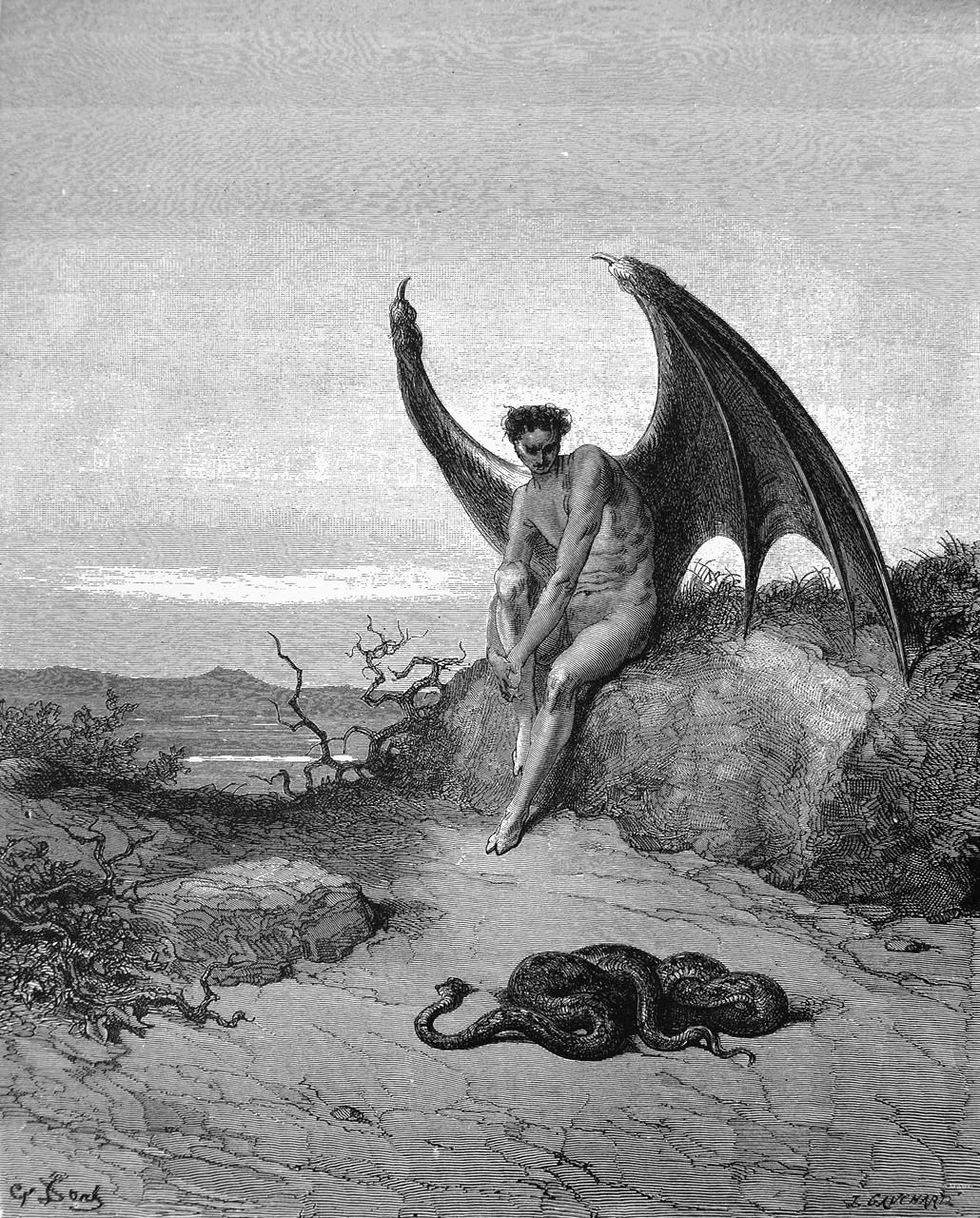(Lucifer, the fallen angel by Gustave Doré on an unknown date, posted to Wikimedia Commons on April 5th, 2008)
Personifying the Earth itself is an interesting concept. How aware is it of the events of Genesis? What is it feeling, like how we get a glimpse of it in the story of Lilith's creation?
The whole of God's creating humanity, the animals, and the various aspects of Eden can be interpreted as a test for humanity to estimate the character of them. Can this story be reconstructed in a form that will speak to a technologically ingrained society? Perhaps through a science fiction-like makeover, ancient tech or otherwise?
Women accused as a source of evil in the world: Lilith punished for wanting to have the same equality and rights as Adam, and Eve is blamed by Adam for bringing him to sin. There are also patriarchal tendencies in the distinctions between man created from dust and woman created from the bone of man.
How far can worship of God be pushed? To what extent is one responsible for a sin? Why punish humankind for seeking knowledge and yet willingly give them the capacity for it? Is God's vision of humanity's happiness the only vision of happiness worth pursuing?
Branching off of the topic of knowledge, the serpent is a POV that could prove interesting to explore. Ask questions about placing animals under man, why knowledge is forbidden when made a gift from God, and explore motivations.
Branching of of that, would it be likely that the serpent, Lilith, and Satan have a familial relation to one another? What if they convened and discussed their grievances with God's holy decrees and the world and order he has constructed.
Adam and Eve as high observers of humanity, the animals, and order is something that I feel is implied in the text. Might this be an idea worth exploring?
Bibliography
Adam and Eve, story sources vary, from King James' Bible to The Legend of the Jews by Louis Ginzberg

No comments:
Post a Comment